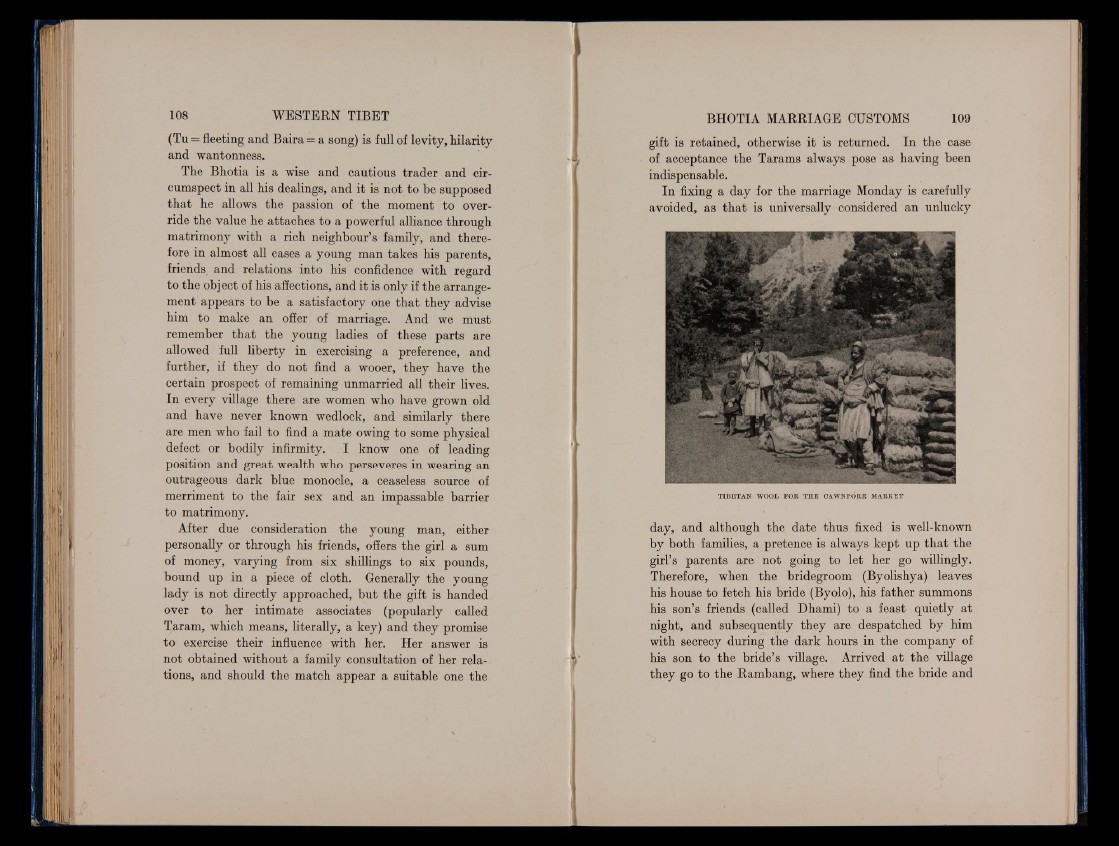
(Tu = fleeting and Baira = a song) is full of levity, hilarity
and wantonness.
The Bhotia is a wise and cautious trader and circumspect
in all his dealings, and it is not to be supposed
that he allows the passion of the moment to override
the value he attaches to a powerful alliance through
matrimony with a rich neighbour’s family, and therefore
in almost all cases a young man takes his parents,
friends and relations into his confidence with regard
to the object of his affections, and it is only if the arrangement
appears to be a satisfactory one that they advise
him to make an offer of marriage. And we must
remember that the young ladies of these parts are
allowed full liberty in exercising a preference, and
further, if they do not find a wooer, they have the
certain prospect of remaining unmarried all their lives.
In every village there are women who have grown old
and have never known wedlock, and similarly there
are men who fail to find a mate owing to some physical
defect or bodily infirmity. I know one of leading
position and great wealth who perseveres in wearing an
outrageous dark blue monocle, a ceaseless source of
merriment to the fair sex and an impassable barrier
to matrimony.
After due consideration the young man, either
personally or through his friends, offers the girl a sum
of money, varying from six shillings to six pounds,
bound up in a piece of cloth. Generally the young
lady is not directly approached, but the gift is handed,
over to her intimate associates (popularly called
Taram, which means, literally, a key) and they promise
to exercise their influence with her. Her answer is
not obtained without a family consultation of her relations,
and should the match appear a suitable one the
gift is retained, otherwise it is returned. In the case
of acceptance the Tarams always pose as having been
indispensable.
In fixing a day for the marriage Monday is carefully
avoided, as that is universally considered an unlucky
TIBETAN WOOL FOR THE CAWNPORE MARKET
day, and although the date thus fixed is well-known
by both families, a pretence is always kept up that the
girl’s parents are not going to let her go willingly.
Therefore, when the bridegroom (Byolishya) leaves
his house to fetch his bride (Byolo), his father summons
his son’s friends (called Dhami) to a feast quietly at
night, and subsequently they are despatched by him
with secrecy during the dark hours in the company of
his son to the bride’s village. Arrived at the village
they go to the Rambang, where they find the bride and